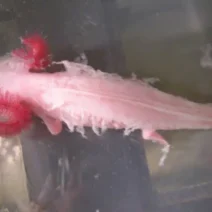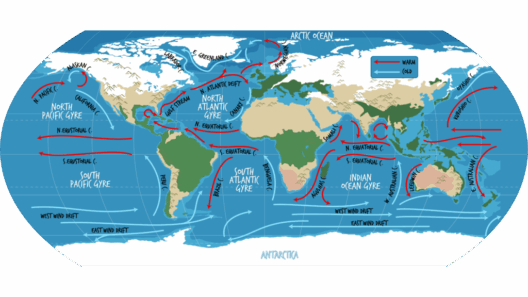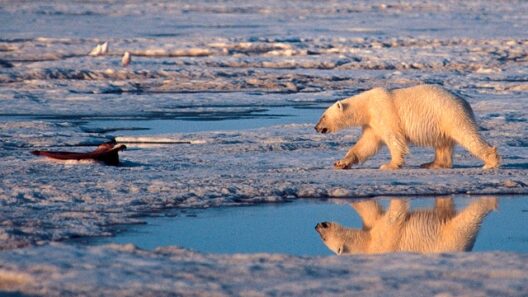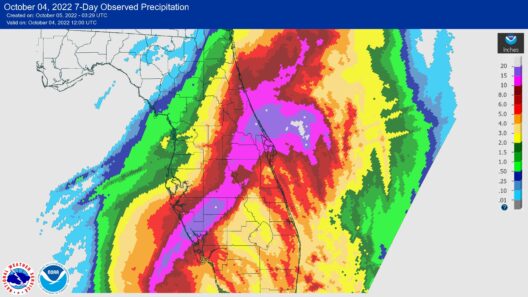In the grand theater of our planet, the oceans are the vast, blue heart, pulsating with life and vitality. They are the stage where an intricate ballet of ecosystems unfolds, replete with millions of species weaving their intricate tapestry of existence. However, this stage is now dimmed, as global warming takes a heavy toll on the very resources that sustain myriad forms of life. The catastrophe unfolds like a tragic play, with our oceans receiving their script of despair. The urgency to address this crisis cannot be overstated; the oceans, the lifeblood of our planet, are under siege.
The first act in this unfolding drama is warming waters. As the Earth’s temperature progresses—climbing steadily due to greenhouse gas emissions—the ocean absorbs approximately 30% of this excess heat. This phenomenon results in a tragic subtext: marine species are forced into a precarious dance, searching for cooler waters. Coral reefs, often termed the “rainforests of the sea” for their rich biodiversity, are particularly susceptible. As water temperatures rise, corals undergo bleaching, expelling the vibrant algae that provide them not only color but essential nutrients. Without revitalization, vast sections of these underwater coral ecosystems succumb to lifelessness, leading to an irreversible loss of biodiversity and habitat.
The plight of marine species extends beyond a mere loss of habitat. A peculiar metamorphosis takes place as fish and other sea dwellers react to climate shifts. Fish populations are not simply moving; they are reshaping their very existence. Species traditionally found in temperate waters are migrating poleward, where conditions are more congenial. This migration creates imbalances within local ecosystems, where native species struggle to compete for dwindling resources. The enchanting symphony of aquatic life is rendered discordant as the harmonies of old are drowned out by newcomers, altering the very essence of ocean life.
As the sea warms, it does not merely behave like a feverish organism; it also undergoes a secondary metamorphosis: acidification. The oceans, acting as a sponge for carbon emissions, absorb approximately one-third of carbon dioxide produced by human activities. This carbon transforms into carbonic acid, leading to a decrease in pH levels. This change in the chemical makeup of seawater is detrimental to calcifying organisms, such as mollusks and certain plankton species, which struggle to form shells and skeletons in increasingly acidic waters. It is a grim reminder that our actions ripple across the globe, affecting even the tiniest organisms that play pivotal roles in marine food webs.
Moreover, the repercussions do not end with individual species. They cascade through entire marine ecosystems, creating a domino effect. The precarious balance of predator and prey is worriedly disrupted. As fish populations decline or shift, not only do fishermen feel the pinch of dwindling catches, but entire communities that rely on fishing for sustenance are left vulnerable. The sociocultural implications are profound; the traditions, livelihoods, and identities tied to these marine resources are now threatened. The ocean, which has been a repository of sustenance, is morphing into a phantom of scarcity.
By observing this unfolding tragedy, we also catch a glimpse of yet another act in this drama: the threat to wetlands and coastal regions. As sea levels rise—one of the most insidious consequences of climate change—these critical areas face an existential threat. Wetlands serve as natural buffers, absorbing floodwaters and providing habitat for myriad species. However, with accelerating rates of coastal erosion and rising waters, these ecosystems are disappearing. They represent a unique intersection of beauty and functionality, yet like so many other resources, they are eclipsed by the advance of climate change.
In reflection, the implications of dwindling oceanic resources extend far beyond the marine realm. The oceans regulate global climate patterns, acting as a mitigator against extremes. As they falter, so too does the delicate equilibrium maintained within our atmosphere. Weather patterns shift, intensifying storms and droughts, and leading to unprecedented challenges in food security across the globe. The specter of global warming casts a long shadow over humanity, leaving us grappling with existential questions regarding our place within this planetary framework.
However, it is vital to recognize that the script is not yet finalized. The tide can turn if collective action is undertaken to mitigate these issues. From reducing greenhouse gas emissions to establishing marine protected areas, proactive measures can be employed to ameliorate the consequences of global warming. The ocean doesn’t merely beckon to humanity; it implores us to restore its vitality, to embrace the stewardship that has been overshadowed by reckless exploitation.
The appeal of the oceans is profoundly unique, characterized by their immense biodiversity and the interdependence that binds all life. As we traverse this intricate web, we must strive to preserve those profound connections. Let us act with intent, for our oceans are not simply resources to be exploited; they are a living testament to the beauty and complexity of life on Earth. Protecting them isn’t merely an act of environmental stewardship; it is an echo of our responsibility to honor our shared existence. In the face of looming crises, the ocean calls us to rally, transforming our mourning into action, and together reshaping the narrative of our seas.








